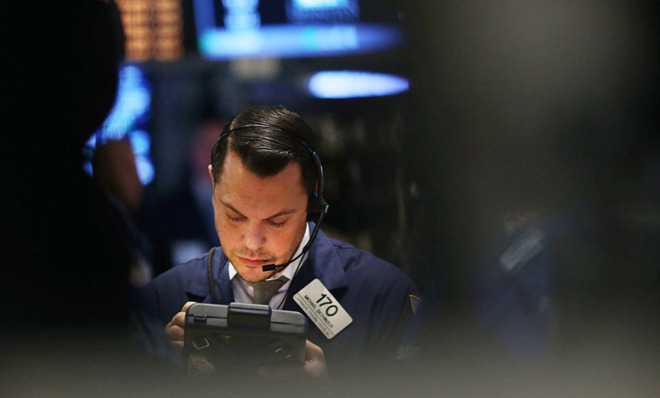No, you can't trade $1,000 into $264 billion
Newsflash: Daytrading is extremely unlikely to make you rich. It is, however, likely to cost you a lot of money.

A free daily email with the biggest news stories of the day – and the best features from TheWeek.com
You are now subscribed
Your newsletter sign-up was successful
David Yanofsky of The Atlantic compiled the best performing stock of each day in 2013, and found that a trader starting the year with $1,000 who then had the luck or skill to buy into the best stock of the day — every day — would have passed $50,000 in March, become a millionaire by April, a billionaire in August, the richest person in the world in November. This extraordinarily prescient daytrader would now be worth $264 billion.
Of course, as Yanofsky notes, this would be impossible in real life because buying and selling in increasingly huge amounts would drastically shift the price, and in many cases there wouldn't have been enough shares to buy. And the likelihood of picking the best stock of the day every day is extremely low. To boot, these calculations omit transaction fees.
There are plenty of other reasons, though, why this kind of daytrading strategy — buying at the start of the day, and selling before the end of the day — is monumentally bad for investors.
The Week
Escape your echo chamber. Get the facts behind the news, plus analysis from multiple perspectives.

Sign up for The Week's Free Newsletters
From our morning news briefing to a weekly Good News Newsletter, get the best of The Week delivered directly to your inbox.
From our morning news briefing to a weekly Good News Newsletter, get the best of The Week delivered directly to your inbox.
Barber and Odean (2004) investigated daytrading behavior and found that 80 percent of daytraders typically lose money, after deducting for transaction fees, over a six-month period. If you're spending money buying and selling each and every day, that adds up over six months, and very often neutralizes any profit made.
And that's losing money in absolute terms, not just relative to the market itself. The market outperforms 99.4 percent of professional money managers in the long term. Yes, that's right: History shows that investors are much, much better off buying index funds like the S&P500 than they are trying to pick stocks, or giving their funds to a money manager. This may be less exciting than buying and selling stock every day, but at least you’re not losing money to daily (or hourly) transaction fees, or making amateurish mistakes like chasing losses.
Why are traders so bad at picking stocks? For starters, stock picking is more complex than most activities. Imagine a beauty contest where participants pick the prettiest face. Picking stocks is like a beauty contest where participants pick not who they think is the prettiest face, but who they think other traders will think is the prettiest face, not now, but in the future. Layers and layers of complexity.
Plus, information is incorporated into stock prices really, really fast. There are large hedge funds and banks with high-frequency trading software that scans Twitter and the news media looking for signals to buy and sell stocks. These can buy and sell in less than a millionth of a second. It's very difficult for regular investors to gain access to information that isn't quickly incorporated into the market.
A free daily email with the biggest news stories of the day – and the best features from TheWeek.com
Of course, sometimes the market largely ignores information — that's how bubbles happen — which creates a profit opportunity for a clever few. And some people do have such a skill for investing that they gain a track record for beating the market. But the data shows that this is less than 0.6 percent of professional money managers. Are you in the top 0.6 percent of performers in your job? Maybe, but probably not. And money management is a competitive field to get into in the first place.
Perhaps the thrill of trying to be one of the few who can beat the market is worth it for investors in their teens and twenties who are a very long way from retirement, much like the thrill of trying to make it as a musician or actor. But for the overwhelming majority trying to build a nest-egg for retirement, it is better to be the market and buy boring index funds than it is to try to beat the market. That cannot be emphasized enough.
John Aziz is the economics and business correspondent at TheWeek.com. He is also an associate editor at Pieria.co.uk. Previously his work has appeared on Business Insider, Zero Hedge, and Noahpinion.
-
 What is the endgame in the DHS shutdown?
What is the endgame in the DHS shutdown?Today’s Big Question Democrats want to rein in ICE’s immigration crackdown
-
 ‘Poor time management isn’t just an inconvenience’
‘Poor time management isn’t just an inconvenience’Instant Opinion Opinion, comment and editorials of the day
-
 Bad Bunny’s Super Bowl: A win for unity
Bad Bunny’s Super Bowl: A win for unityFeature The global superstar's halftime show was a celebration for everyone to enjoy